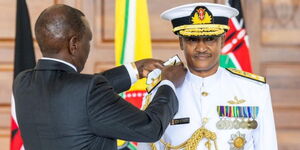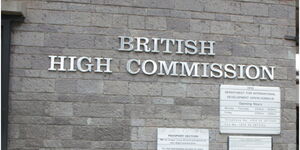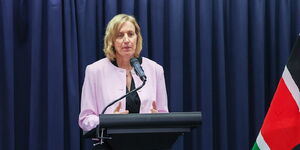The government is ramping up efforts to boost revenue by targeting marriage registration fees, from Kenyans who are seeking to formalise their unions.
The newly appointed Attorney General, Dorcas Oduor, has a issued a directive that has left pastors and marriage registrars scrambling. The AG’s office has mandated that all marriage certificates for already conducted marriages must be submitted within 30 days.
This directive, published in the government's MyGov notice on Tuesday, September 3, has also imposed a strict 14-day cut-off time for registrars to scan and upload all marriage certificates.
The intent is clear: the government wants to tighten its grip on marriage records, ensuring every certificate is accounted for and potentially monetised.
She added, “Scan and upload marriage certificates and Registrar's certificates or special license as the case maybe for all marriages to be conducted from September 1, 2024. The same is to be submitted to marriage.returns@ag.go.ke.”
Further directing, “Deliver the original marriage certificates to the Registrar of Marriages, Nairobi within Fourteen (14) days of the celebration of the marriage.”
The move is part of a broader strategy by the government to increase marriage processing fees tenfold. Couples who once paid Ksh5,000 for the process are now staring at a steep Ksh50,000 bill. This dramatic hike is set to impact thousands of Kenyans, many of whom are already feeling the pinch of the country’s economic challenges.
The Treasury stated it plans to raise more revenue through the government's determination to extract more revenue from administrative fees. With the rejection of the Finance Bill 2024, the focus has shifted to other avenues, including the issuance of vital documents like national identity cards, passports, work permits, and now, marriage certificates.
The target is a hefty Ksh55.8 billion in the next financial year, up from Ksh28.3 billion this year.
The directive has left marriage registrars in a tight spot. They are now required to ensure that every marriage certificate, whether for a civil, Christian, Hindu, Islamic, or customary marriage, is submitted to the Registrar of Marriages in Nairobi. Failure to comply could result in serious repercussions, including legal action.
According to the Marriage Act, Cap 150, registrars and licensed ministers of faith must complete and sign marriage certificates during ceremonies, ensuring that both the couple and witnesses also sign. These certificates must then be delivered to the Registrar, who will maintain them in an official register.
The law is explicit, with Sections 53 to 57 detailing the responsibilities of those officiating marriages, while Section 59 outlines how marriages may be proven in Kenya.
However, the government's focus is not just on compliance but also on cash. The revised fees are seen as a way to bolster the national coffers, but they have been met with resistance.
The High Court, in November last year, suspended a Kenya Gazette notice that sought to increase charges for critical documents, including identity cards and passports, after a Nakuru-based doctor filed a petition. The case, currently ongoing, has brought temporary relief to Kenyans, but the battle over the new fees is far from over.
The Attorney General's office remains adamant, pushing forward with its revenue-raising agenda despite the court's intervention. This latest directive on marriage certificates is part of that push, and it signals a government unafraid to make unpopular decisions in the name of fiscal prudence.












